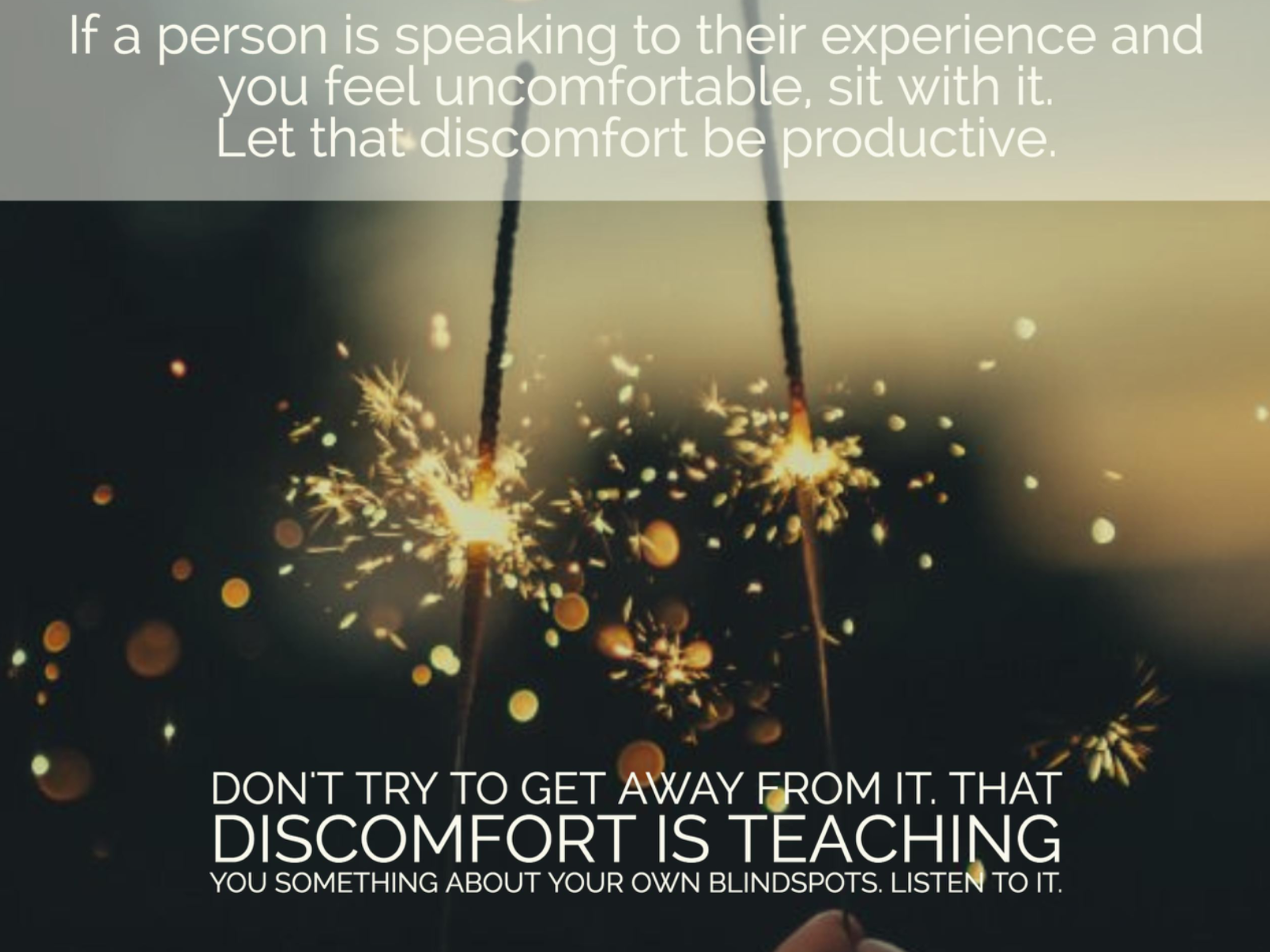It's Time For You to Get Uncomfortable
If you are like me, you probably subscribe to several email newsletters, and like me, you are probably inundated daily with advertisements to buy various products, try the latest fad, or think a certain way. As I delete more than half of these emails without reading, I sometimes ask myself why I signed up in the first place. I suppose a small part of me has succumbed to the fear of loss; what if I miss out on a great piece of wisdom if I unsubscribe from the list? And so I remain subscribed, hoping to glean what nuggets I can from the myriad of email newsletters that populate my inbox.
There are a select few that I do read without fail, and I look forward to receiving them. One is from the group Neurohacker Collective, led by the genius Daniel Schmachtenberger, and I wanted to share an email I received from them this week. Neurohacker is part supplement company, part think tank, and as mentioned, was founded by Schmachtenberger. A product of unschooling/homeschooling, Daniel is a modern day polymath, combining a deep knowledge of biology, human physiology, chemistry, cognitive psychology, and nutrition, with politics, sustainability, and economic theory. His depth of knowledge in so many areas is matched by few, and he is as controversial as he is fascinating, and in a multitude of ways.
The email was written by Ben Cote, the Director of Community at Neurohacker, and is reproduced here with his permission. The subject is the idea of being OK with the uncomfortable, to be OK with being wrong. I thought his words quite pertinent to our time, where warring factions play out in the national headlines daily, and finding common ground is an afterthought, or seen as impossibility altogether. I hope you enjoy this one as much as I did, and that it provides you with great value. Ben Cote from Neurohacker Collective:
It’s time to get uncomfortable, and nothing is more uncomfortable than this
Last newsletter I invited you to get started on whatever it was you were hesitating with. This one is to push you to get uncomfortable.
Our goal at Neurohacker Collective is to upgrade the collectives capacity for advancing human sovereignty and we all about optimizing our systems to reach that goal.
We all want our brains to be operating at their highest performing levels as that affects everything else in our lives and research has shown that those with the strongest emotional centers of their brain retain their super-charged mental functions as they age.(1)
This is what we all want as we grow older, so how do we get there? In short, we must get uncomfortable. We must do new and difficult things to grow and keep those emotional centers humming. There are a lot of things we can do toward this goal. Learn a new language, pick up a new instrument, get up on stage for some improv etc.
One of the biggest things we can do to be uncomfortable is to be wrong. We often go way out of our way to remain “right” in our own minds. In today’s day and age it’s easier than ever to put ourselves in a bubble of like-minded thinking, ideas, and news to let us reinforce our own beliefs and thoughts.
“You can just switch off the radio, change channels, only like the Facebook pages that give you the kind of news you prefer. You can construct a pillow fort of the information that’s comfortable.”(2)
It’s OK to be wrong.
Being wrong feels bad. When we are confronted with contradictory information especially if we are feel our beliefs are being attacked our brains freak out. In situations of high stress, fear or distrust, the hormone and neurotransmitter cortisol floods the brain. Executive functions that help us with advanced thought processes like strategy, trust building, and compassion shut down. And the amygdala, our instinctive brain, takes over. The body makes a chemical choice about how best to protect itself — in this case from the shame and loss of power associated with being wrong — and as a result is unable to regulate its emotions or handle the gaps between expectations and reality. So we default to one of four responses: fight (keep arguing the point), flight (revert to, and hide behind, group consensus), freeze (disengage from the argument by shutting up) or appease (make nice with your adversary by simply agreeing with him).(3)
All of this activity is terrible as it shuts us down from communicating effectively or actually learning something from the situation or interaction. That’s all the bad stuff that happens when we feel wrong. Then there’s all the good stuff that happens when we feel right.
Why it feels so good to be right.
When you argue and win, your brain floods with different hormones: adrenaline and dopamine, which makes you feel good, dominant, even invincible. It’s a the feeling any of us would want to replicate. So the next time we’re in a tense situation, we fight again. We get addicted to being right.(3) This is how we keep getting ourselves into these situations. Being wrong feels so bad and being right feels so damn good, but there is a third way.
The third way
Lucky for us, there is a third hormone that can feel just as good as adrenaline and actually gets us what we want and helps us move forward with new ideas and new growth; oxytocin. This is activated by human connection, which is something we could all use a little more of. This opens up the networks in our brain, in the prefrontal cortex increasing our ability to trust and opens ourselves up to sharing.
2 simple tricks to access that third way
Here's two simple tools to unlock that third way of thinking.
Don’t assume you are right.
Open yourself up to the possibility that you might not be right about something. Start from that position. Look for new information that you may not have been seeing or open to seeing. See what other viewpoints exist and see it from their side.
Listen with empathy.
Speak less and listen a little more. Don’t use the time that the other person is speaking to think about your next witty retort. Actually listen to them and listen from their perspective. Put yourself in their place and understand their thoughts from their view of the world.
This world could use a lot more people being OK with the idea of being wrong and working towards a new understanding of what being right looks like. This also is the best way to grow and strengthen those emotional centers in our brain that lead toward improving our cognitive functions, so it’s a win win for everyone.
Now go outside and be wrong and be OK with it. See what you learn from it.
Ben


